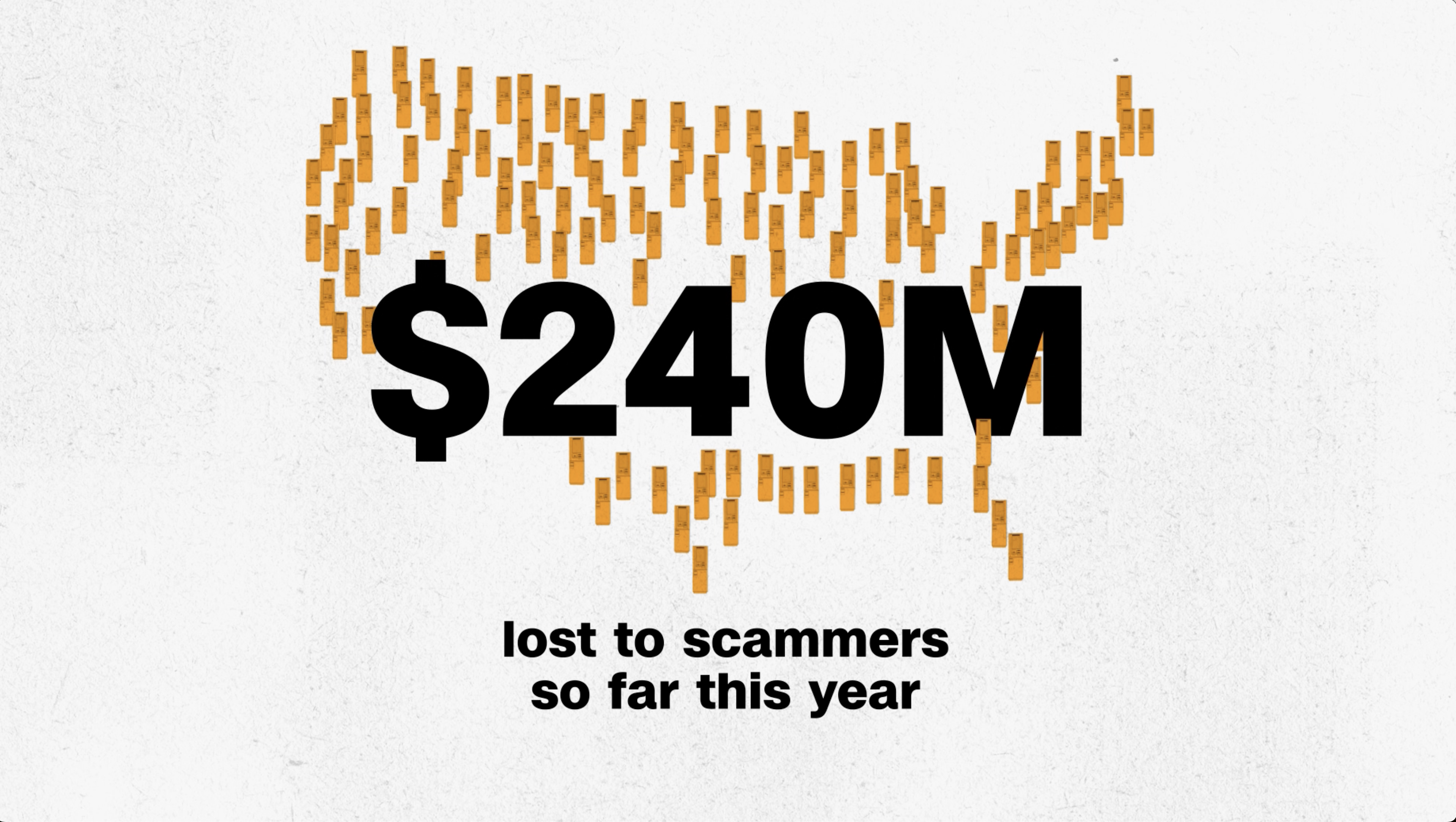$0 $0 $0 $0 $0 The machine sits near the front door inside a convenience store on a busy street in Prescott, Arizona, wedged next to an ice cream cooler and a rack of bottled water. It’s about five feet high and covered in a black-and-gold honeycomb pattern. There’s a touchscreen, a keypad and a slot to feed in cash. At first glance it looks like an ordinary ATM – but it’s not. It’s a perpetual crime scene, a key tool in a sinister web of international scams that bilk people out of their savings. In just four days earlier this summer, four people were defrauded by scammers here. A woman named Jeanne lost $18,000, fed bill by bill into the machine. Hours later, Patricia lost $3,000 in the same spot. The next day, $25,000 was stolen from Heather. Lily walked in two days later and was fleeced out of nearly $8,000. Since last year, at least a dozen victims were duped out of a total of $118,000 at this machine – a crypto ATM, which turns cash into cryptocurrency.
Crypto crime scene How the companies behind crypto ATMs profit as Americans lose millions to scams
The victims were led to the Arizona convenience store by an increasingly familiar scam: Crooks had tricked them into believing they were in legal trouble, their bank accounts were hacked or that they had to pay off debts. To fix the "crisis," they were told to feed cash into the crypto ATM – where it was promptly routed to scammers' accounts.
This crime wave was no secret. Local police knew all about it.
But they were all but powerless to stop the scammers.
And what truly frustrates investigators is that US companies, which own and operate crypto ATMs around the country, profit from the fraud while doing too little to help stop it. Prosecutors have likened the machines to a "getaway vehicle" exploited by thieves to quickly escape with the money.
A CNN investigation, which included a review of more than 700 criminal cases and complaints, has found that crypto ATM companies make money by often marking up the price of cryptocurrency by 20% to 30% or more on transactions, including the illicit ones. Despite public claims, they often fail to refund money to victims and aggressively fight police to claw back scam money seized from machines.
The companies have also largely failed to adopt measures that could stifle scammers, such as strict transaction limits, and have heavily lobbied state legislatures to neuter laws that would force them to better protect victims. Some states have passed or proposed laws that closely match model legislation with fewer protections pushed by industry lobbyists.
“These machines are nothing more than conduits for fraud and criminal activity. Period,” said New Jersey state Sen. Paul Moriarty, who sponsored a bill in his state to outright ban the machines. “There’s no other use for them, because if you wanted to buy cryptocurrency you could buy it somewhere else for less.”
The story is increasingly common around the nation. Americans, often retirees, lost around $240 million to crypto ATM scams in the first six months of this year, according to the FBI – about double the pace of similar scams last year.
Crypto ATM companies charge significant markups on the price of cryptocurrency Transaction receipt Status: Pending coins Market price: $67,000 Sales price: $83,400+24% Service fee: $3 Cash: $4,300 Bitcoin sent: 0.05155024 BTC 20-30% charge in fees and markups Thank you for using Bitcoin Depot! This is a receipt for an actual Bitcoin Depot transaction from March of last year. Numbers have been rounded. Bitcoin Depot Transaction 3/18/24 10:02 AM PDT While it looks as though Bitcoin Depot only charges a $3 service fee, the company is selling Bitcoin at 24 percent higher than the market rate on this transaction. On this $4,300 transaction, Bitcoin Depot would have issued the customer around $3,450 worth of Bitcoin, pocketing around $850 on top of the $3 service fee.
In interviews with CNN, four former crypto ATM company employees said that companies are not doing enough to prevent fraud or help victims.
One former senior staffer at a crypto ATM company who spoke anonymously for fear of reprisal described the general philosophy at his former employer as, “it’s not my problem if someone is stupid and gets scammed.”
Another former staffer said, "If there was a way to prevent 100% of scams t
Continue Reading on CNN
This preview shows approximately 15% of the article. Read the full story on the publisher's website to support quality journalism.
